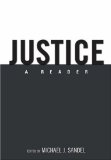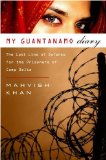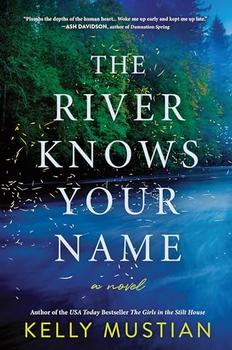Summary | Excerpt | Reviews | Beyond the book | Read-Alikes | Genres & Themes | Author Bio

Defending American Values from a President Run Amok
by Glenn GreenwaldIf we are to remain a constitutional republic, Greenwald writes, we cannot abide radical theories of executive power, which are transforming the very core of our national character, and moving us from democracy toward despotism. This is not hyperbole. This is the crisis all Americans—liberals and conservatives--now face.
In the spirit of the colonists who once mustered the strength to denounce a king, Greenwald invites us to consider: How would a patriot act today?
Glenn Greenwald was not a political man. Not liberal, not
conservative. Politicians were all the same and it didn’t matter
which party was in power. Extremists on both ends canceled each
other out, and the United States would essentially remain
forever centrist. Or so he thought.
Then came September 11, 2001. Greenwald’s disinterest in
politics was replaced by patriotism, and he supported the war in
Afghanistan. He also gave President Bush the benefit of the
doubt over his decision to invade Iraq. But, as he saw Americans
and others being disappeared, jailed and tortured, without
charges or legal representation, he began to worry. And when he
learned his president had seized the power to spy on American
citizens on American soil, without the oversight required by
law, he could stand no more. At the heart of these actions,
Greenwald saw unprecedented and extremist theories of
presidential power, theories that flout the Constitution and
make President Bush accountable to no one, and no law.
How Would a Patriot Act? is one man’s story of being
galvanized into action to defend America’s founding principles,
and a reasoned argument for what must be done. Greenwald’s
penetrating words should inspire a nation to defend the
Constitution from a president who secretly bestowed upon himself
the powers of a monarch. If we are to remain a constitutional
republic, Greenwald writes, we cannot abide radical theories of
executive power, which are transforming the very core of our
national character, and moving us from democracy toward
despotism. This is not hyperbole. This is the crisis all
Americans—liberals and conservatives--now face.
In the spirit of the colonists who once mustered the strength
to denounce a king, Greenwald invites us to consider: How would
a patriot act today?
Left wing groups are embracing Greenwald as their own and right wing groups accuse him of selling out. However, it really does seem that Greenwald is genuinely non-partisan - he does not criticize Republicans nor, for that matter, praise the Democrats. His focus is simply on an administration that he sees as operating in clear contradiction of, not only America's laws, but also the core values that define America. Whatever your political persuasion, this book is worth a second glance..continued
Full Review
(617 words)
This review is available to non-members for a limited time. For full access,
become a member today.
(Reviewed by BookBrowse Review Team).
Glenn
Greenwald is a Constitutional
law attorney, and author of the
political blog, "Unclaimed
Territory." He has written for
American Conservative magazine
and appeared on a variety of
television and radio programs,
including C-Span's "Washington
Journal," Air America's
"Majority Report" and Public
Radio International's "To the
Point." His reporting and
analysis have been credited in
The Los Angeles Times, The
Washington Post, Salon, Slate
and a variety of other print and
online publications.
...
This "beyond the book" feature is available to non-members for a limited time. Join today for full access.

If you liked How Would A Patriot Act?, try these:

by Michael J. Sandel
Published 2010
Michael J. Sandel's "Justice" course is one of the most popular and influential at Harvard. Up to a thousand students pack the campus theater to hear Sandel relate the big questions of political philosophy to the most vexing issues of the day. Justice offers readers the same exhilarating journey that captivates Harvard students.

by Mahvish Khan
Published 2009
Outraged that her country was illegally imprisoning people at Guantanamo, Mahvish Khan volunteered to translate for the prisoners. Her story is a challenging, brave, and essential test of who she is —and who we are.



Anagrams
Click Here to find out who said this, as well as discovering other famous literary quotes!